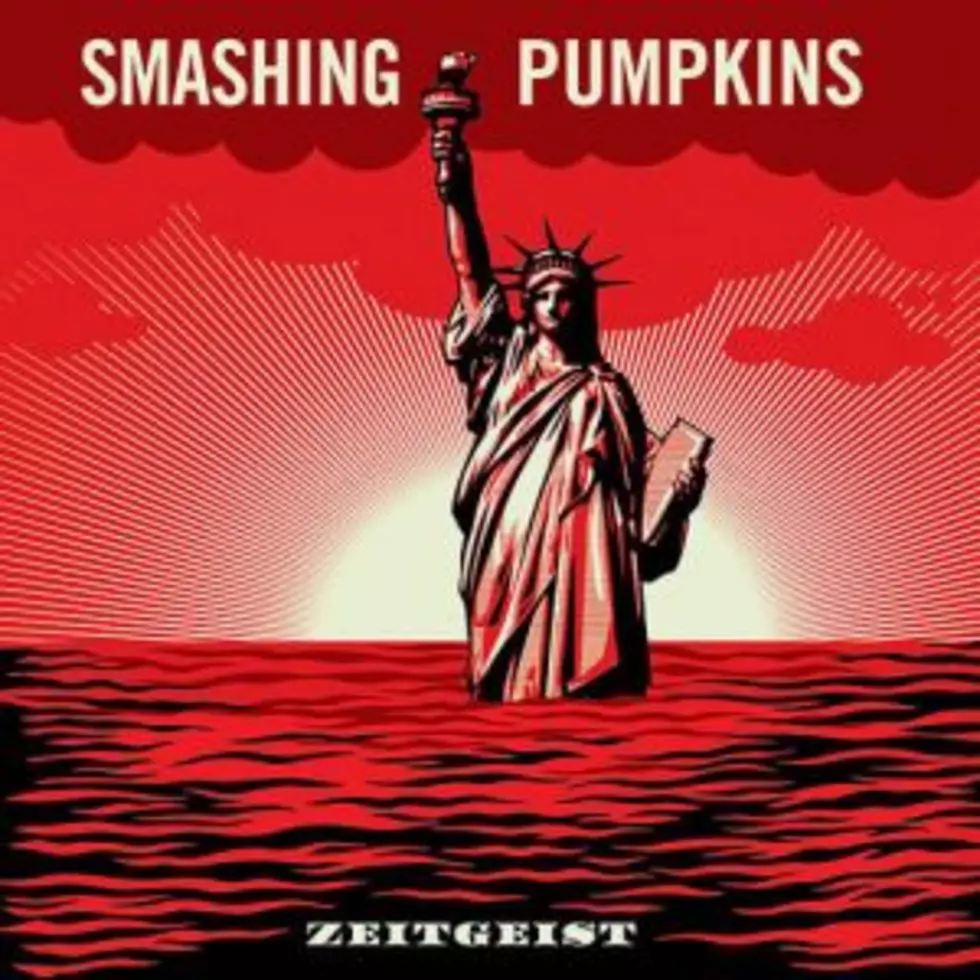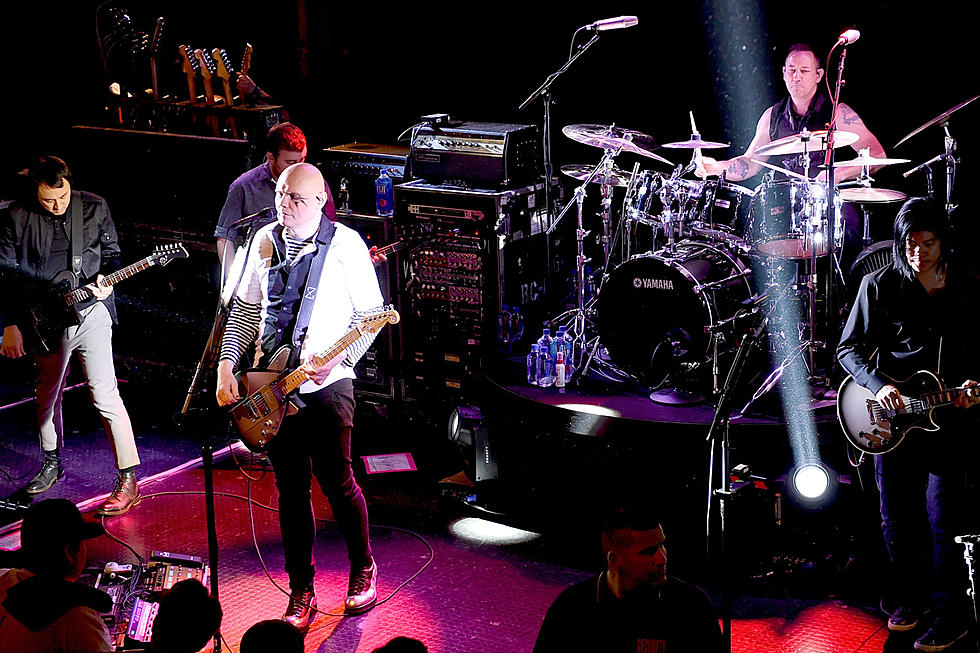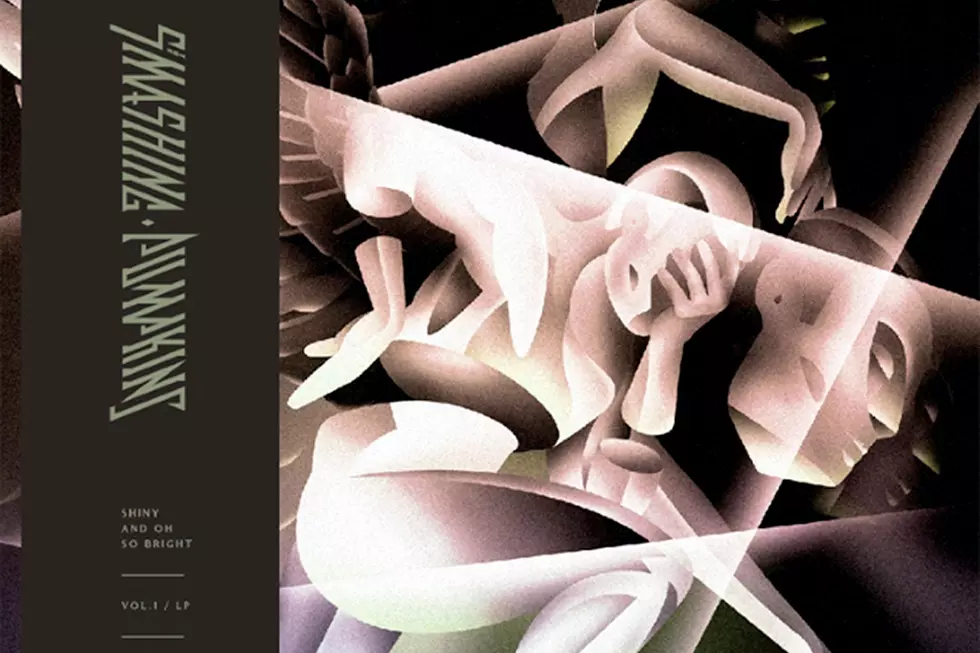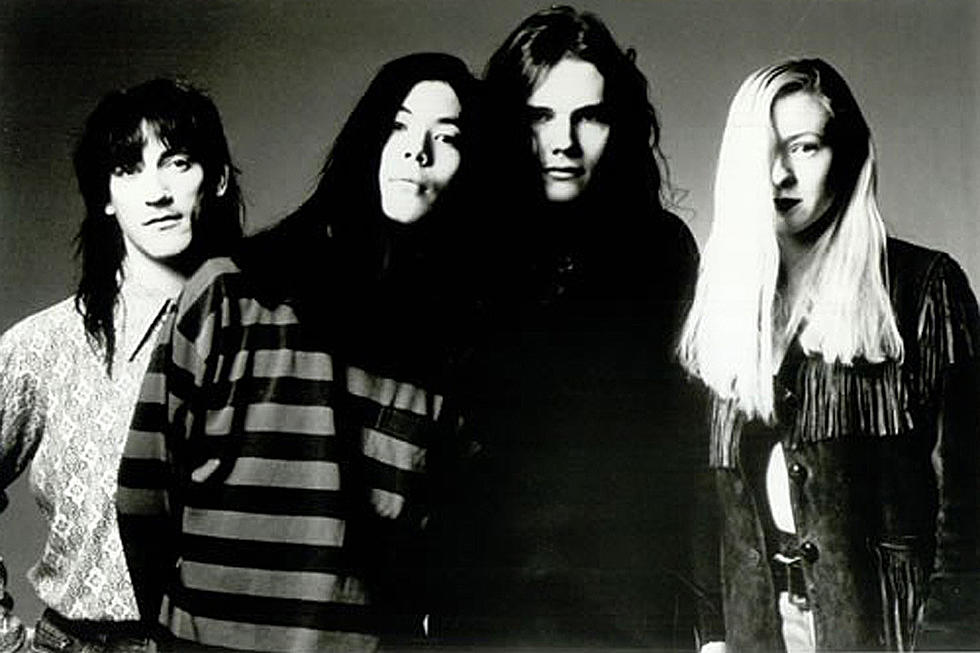
10 Years Ago: Smashing Pumpkins Release Their ‘Comeback’ Album, ‘Zeitgeist’
If you paid attention to the critics' reactions to Zeitgeist when it came out back in 2007, there's a good chance you skipped it altogether. But a decade later, the Smashing Pumpkins' comeback album holds up surprisingly well.
Pumpkins frontman Billy Corgan has been living in the shadow of his greatest successes, Siamese Dream and Mellon Collie and the Infinite Sadness ever since those albums were released. For every step he's taken since then, there have always been people there to shake their heads and say, "It's okay, but it's no 'Cherub Rock.'"
Had the Pumpkins released Zeitgeist earlier, say, after Adore, it would probably have been more well-received by critics. But its release was framed in the context of the commercial failure of the Pumpkins' last album, Machina/The Machines of God, and the band's subsequent breakup.
So when Corgan "reunited" the Pumpkins in 2005 without original members D'Arcy Wretsky and James Iha, many eyebrows were raised. More than a few people accused Corgan of reviving the Pumpkins name purely for the money after his other band, Zwan, failed to really impress anyone.
But while Zeitgeist does have plenty in common with Siamese Dream, without the distance between the two albums, Zeitgeist is just another guitar-driven alternative rock album, as opposed to a comeback album that jaded fans see only as a profit-driven nostalgia act. Without the weight of the Pumpkins' legacy, it's a solid album that deserves its place among the Pumpkins' catalog.
The album starts off with a loud proclamation: Jimmy Chamberlain is a badass. A booming drum fill introduces the thing that all the old Pumpkins fans had been claiming they wanted ever since Adore: lots of guitars. It is, as they say, a bit of a ripper.
And consider the song "7 Shades of Black." It's heavy; it's melodic and catchy, and it's actually pretty interesting. It's one of many tracks on the album where, if you listen closely, you can hear that Corgan put a lot of thought and consideration into it.
Perhaps the thing it lacked that made Siamese and Mellon Collie so good was enthusiasm. When the Pumpkins made their grand return to television, they were tight and sounded good, but more like a really good wedding band as opposed to a group of people really excited to be playing hard rock for a huge audience. In the video below, Chamberlain looks positively bored.
Corgan probably summed up this message himself best in an interview with Faster Louder while discussing his own dissatisfaction with Zeitgeist:
I felt that way at the time. But that being said, I still thought it was good, or I wouldn’t have put it out. I still thought there was a lot of value there, but because people couldn’t get past it not sounding like Siamese Dream, it got kind of lumped into a category. So I when I say that, people think I mean it in terms of other things, no I meant it in terms of my own goals. It’s not like I went and said ‘let’s make Siamese Dream number two’ and I didn’t make it, ‘yeah it’s a failure’, no I went in to make an album that sounded like Zeitgeist. ... To have it be kind of degraded into something because it wasn’t want people wanted, that’s a different set of expectations that don’t have anything to do with me.
Is Zeitgeist as good as Siamese Dream or Mellon Collie and the Infinite Sadness? Of course not. But that's not the point. The point is that Zeitgeist is a great album on its own, once you judge it without the baggage.
More From Diffuser.fm









